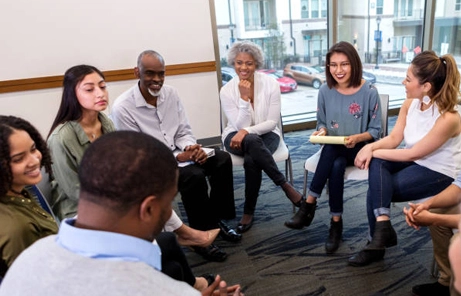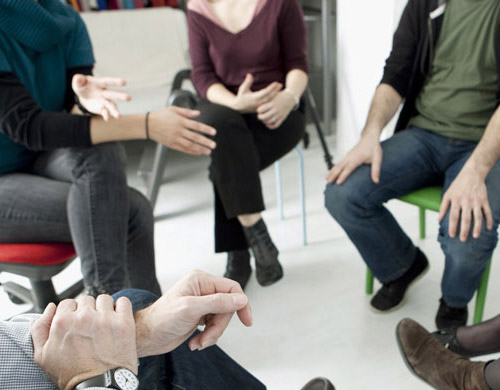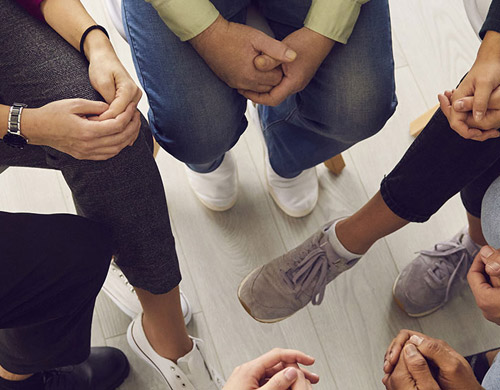Alcohol and drug dependencies introduce hurdles when you or someone you care about experiences them. Through proven rehabilitation therapies, drug addiction & alcoholism can be treated for long-term recovery.
In this guide we will explain how an integrated rehabilitation program can enable you or a loved one to start and sustain addiction recovery.
What is Addiction Rehab (Rehabilitation)?
Addiction ‘rehab’ is a holistic treatment plan that introduces both the therapeutic and medical interventions to treat drug addiction & prescription drug addiction. Rehab has better chances of long term recovery success when it is customized to the individual needs of the client and incorporates medically-managed detoxification, residential or outpatient programs, and relapse management techniques such as aftercare.

Facts & Statistics about Addiction in Long Beach
Prevalence of Substance Use Disorder, by Drug Type
(IN THOUSANDS)
- 2,7578.5%Any Substance
- 2,0886.4%Alcohol
- 1,0683.3%Ilicit Drugs
- 2060.6%Pain Medication
Drug- and Alcohol-Induced Deaths by Age Group, California, 2016
- Alcohol-Induced
- Drug-Induced
- 18 to 250.5
- 9.6
- 26 to 354.3
- 13.9
- 36 to 6424.2
- 22.9
- 65+23.7
- 9.4
Drug Use, by Selected Type and Age Group California, 2015 to 2016
- 12 to 17
- 18 to 25
- 26+
- Marijuana*13.2%
- 34.0%
- 13.5%
- Misuse of Pain Medications3.5%
- 8.0%
- 4.3%
- Cocaine0.8%
- 7.2%
- 1.8%
- Heroin0%
- 0.4%
- 0.2%
What are the treatment options available in Long Beach?
Through integrating treatments, the primary causes of drug dependence can be explored and healed. By learning healthy coping mechanisms you can tackle substance abuse while tackling the primary symptoms of addiction.

Private Residential Programs
Residential addiction treatment programs require you to reside at the rehab facility and undergo your treatments on-site. Having Access to 24/7 support and addiction treatment is one of the core benefits.
If you live at a rehab facility you are free from most of the triggers in your home environment that may influence your substance abuse. When the environment around you is supportive, your chance of relapse is much smaller and you are more likely to complete your residential rehab program. A residential treatment program offers the best outcome when you have a dual diagnosis, an intense substance dependency or co-occurring disorders.
We understand that the early stages of recovery can be difficult and after a residential rehab program, you need to stay focused to maintain long term recovery. Once you have finished your residential treatment programe you will need to become more independent and set goals for your new life.
Do You Need Help?
We work together towards sobriety.

Sober Living Programs
Support and guidance are key to a sober living program in order to control your future more effectively. The programs usually have:
- A house manager checking in on you regularly
- Working on guidelines for positive behavior in recovery
- Receiving support and companionship from others in recovery who share similar life experiences
Outpatient Programs
By taking part in an outpatient program you have greater flexibility, by visiting the rehabilitation center for treatment weekly and maintain family or work commitments.
Outpatient programs offer recovery services through:
- Education around your substance misuse
- Counseling and talking therapies through group interventions and one-to-one sessions with a skilled addiction therapist. – Outpatient programs should run from a few months to more than a year, and your individual needs will determine the length of treatment.
Detox Only Programs
The need for detoxing a substance from your body is the first step towards rehabilitation, because it removes traces of the substance, putting an end to your physical dependence. As your body returns to normal function without substances in your system, you could experience withdrawal symptoms.
The withdrawal process symbolizes the beginning of the process of rehab, and needs to be followed up by tackling the main reasons for your addictive behavior, so you do not repeat the same damaging pattern of behaviors. Many drugs drive withdrawal and cravings for a period of time after they have been removed from your body. Rehab will help you learn life-changing skills to take into your new life so that you protect yourself from relapse.
Paying for Private Treatment
Private rehab must be to be paid with your own funds or claimed through your insurance policy. Many health insurance providers offer some cover for rehab, which includes detox, the rehab program, medications and aftercare programs. The amount of cover offered by your policy is down to your provider and the details of your policy agreement.
It is always advised that you inquire about the amount you can claim prior to enrolling in a treatment program. To find out what you could qualify for, click on our Verify Your Insurance page here.
If you choose not to claim against your health insurance plan, you will need to pay for your treatment. Some rehab facilities may offer payment plans to those who can’t afford to pay the whole cost of rehab.
State Funded Programs
If you want to trackle your substance or alcohol problems but have limited resources to afford private treatment, you should consider a state-funded rehabilitation program. Support can be offered with funds available from Medicaid and federal/state budgets, these sorts of programs can subsidize your recovery with:

- Safe & confidential medical detox
- Rehab treatment programs including aftercare and support
State-funded rehabilitation programs are open to people who are unable to get private health insurance or who reside in poorer areas. During the application process you will need:
- Medical information around your addiction issues
- Evidence of living arrangements
- Proof of your earnings
- Certification that you reside legally in the US
Click https://www.grants.gov/ to learn more about applying.
You can also download this file for your state agency’s direct contact details.
The following state-funded addiction rehab programs are available in Long Beach:
Behavioral Health Services Flossie Lewis Center
351 East 6th Street, Long Beach, CA 90802
562-435-7350
https://www.bhs-inc.org/Behavioral Health Services Redgate Memorial Recovery Center
1775 Chestnut Avenue, Long Beach, CA 90813
562-599-8444
https://www.bhs-inc.org/Behavioral Health Services Long Beach Family Recovery Center
514 West Pacific Coast Highway, Long Beach, CA 90806
562-432-0713
https://www.bhs-inc.org/
Maintaining Addiction Recovery in Long Beach
Being active in addiction recovery can be difficult once you complete your treatment program. You had the benefits of professional support in a controlled environment at the rehab center.
As you adjust to life after rehab it is very likely that you will find yourself in situations that you still need to learn to address. In our experience, clients with intense dependencies and those who do not develop the necessary support structure find long term recovery more difficult when they leave rehab. Relapse can occur when you don’t have aftercare to support you in your new-found sobriety.
The following AA/NA meetings are available in Long Beach:
AA - 1 Hour Mens Stag
Closed, Men and Wheelchair Access:
1900 East Carson Street, Long Beach, CA 90807
Monday: 6:00 pm – 7:00 pm
https://alcoholicsanonymous.com/We Got A Disease!
Open, Discussion, It Works – How and Why, Step and Wheelchair:
5881 Cherry Avenue, Long Beach, CA, 90805
Friday: 9:00 am – 10:30 am
https://baycitiesna.com/meetings-bmlt/Grow or Go
Discussion, Rotating Format and Speaker:
5881 Cherry Avenue, Long Beach, CA, 90805
Friday: 7:30 pm – 9:00 pm
https://baycitiesna.com/meetings-bmlt/
Aftercare & Alumni Programs
Aftercare programs extend your rehab program once you return to your daily life. By taking part in aftercare support, you can limit the risk of relapse which impacts as many as 60% of individuals who have recently completed a program. It is an essential service provided by most treatment centres.

Once you reach the end of your treatment program you must give some thought to the counseling and therapies most useful to long-term sobriety and an aftercare package will be developed to support you. After finishing your addiction treatment program you will become eligible to join an alumni community program so you can stay in contact with staff and others in recovery.
With the support from this network you will have access to special events and receive motivation and advice from other members who are in long-term sobriety. We encourage you to consider offering support to other former clients in your network if you choose to.
Support Groups (Fellowship Meetings)
Participating in support groups is important because social structures encourage long-term addiction recovery. A couple of the oldest and most important support groups are Alcoholics Anonymous and Narcotics Anonymous, which benefit from the 12-steps to help individuals in recovery via regular meetings.
During support group meetings, individual members begin to share their experiences and learn valuable insights from others. Friendship, empowerment and accountability for our actions are key to long-term recovery, and support groups provide many with the necessary tools to stay sober.
Support for Families & Children Affected by Addiction
Everyone living within a family with addiction issues are affected, in various ways, by its negative impact. Support is just as necessary for the family members as it is for the individual with the addiction issues. By taking part in family support groups, families will learn to manage stressful situations more effectively, and be able to provide better to your loved one recovering from addiction.
Families will benefit from participating in support groups such as:
- Parents of Addicted Loved Ones
- SMART Recovery Family & Friends
- NAMI Family Support Groups
- Al-Anon
- Families Anonymous
- Alateen
- Nar-Anon










